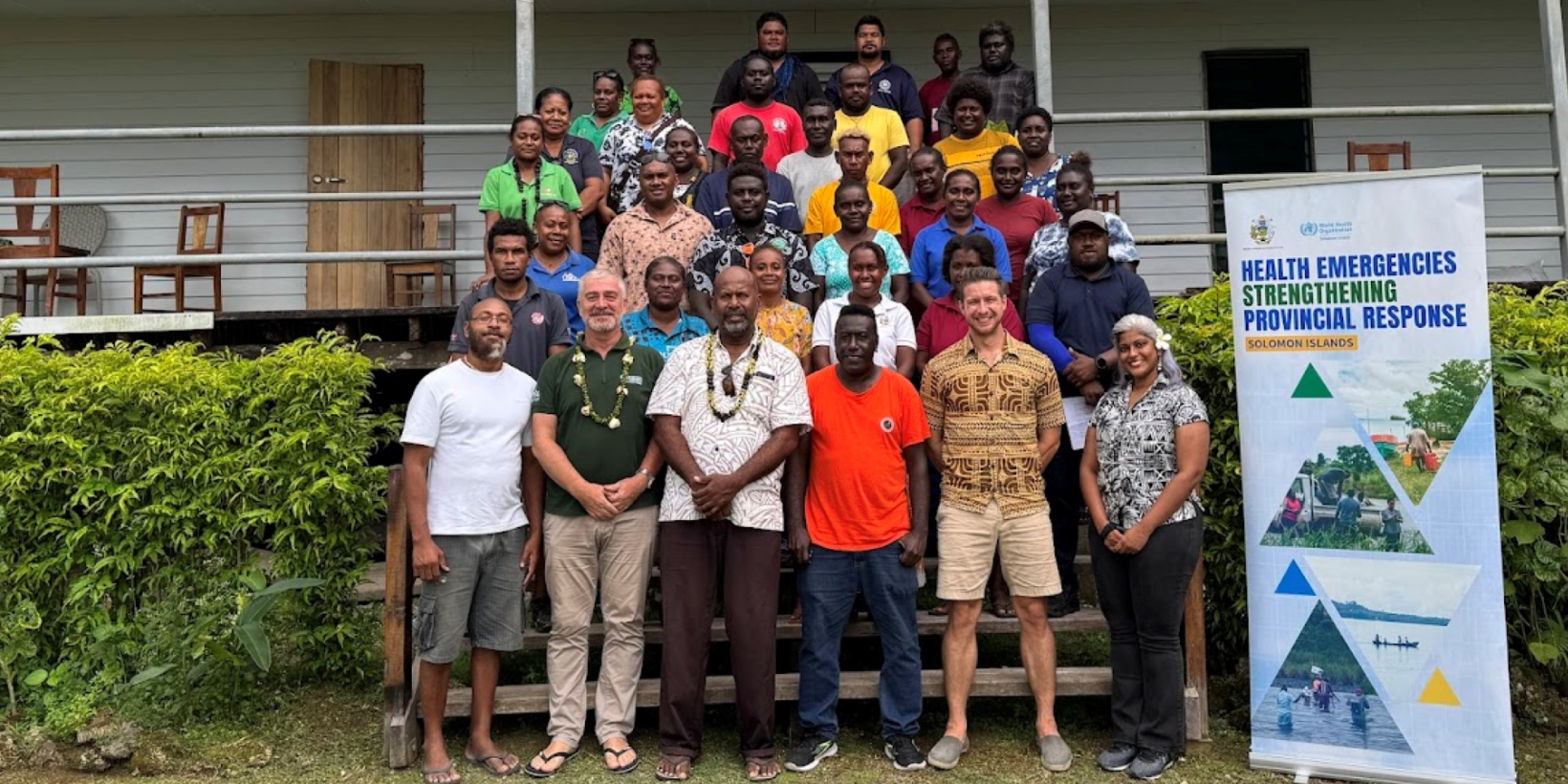To strengthen the provincial response to health emergencies, and address key gaps on emergency health management and emergency workforce development identified in the 2024 Joint External Evaluation (JEE), the Ministry of Health and Medical Services (MHMS) and the World Health Organization (WHO), hosted a foundational two-and-a-half-day emergency response training program in Munda, Western Province.
“This training is vital for our communities,” said Dr Dickson Boara, Provincial Health Director for the Western Province.
“It will empower provincial health teams to mount an immediate and effective response when emergencies happen. By strengthening our preparedness and filling key gaps in our response systems, we protect families, save lives, and build safer, more resilient communities.
“We remain steadfast in supporting the Solomon Islands to create strong and resilient health systems that can withstand and respond to emergencies,” said Dr Howard Sobel, WHO Representative in Solomon Islands.
“This training is important in empowering provincial health teams with the skills, tools, and coordination needed to swiftly and effectively respond to health crises.
“A stronger local response not only protects communities at home, but it also reinforces health security across the Pacific and globally.”
This is particularly important given that the Solomon Islands will be hosting the Pacific Islands Forum, a high-level event from 8-12 September, which will bring together leaders from 18 countries and territories as they work to ensure all Pacific peoples lead free, healthy, and productive lives.
Medical, public health professionals and key representatives from Gizo Hospital, Helena Goldie Hospital, and the broader provincial public health and response workforce from the customs biosecurity, immigration and aviation authorities in Munda airport gathered to:
– review existing emergency preparedness and response plans in Western Province;
-strengthen the emergency response personnel in coordination, patient management, risk communication and logistics capacities for fast deployments;
– map the availability of provincial medical emergency cache;
– discuss the designation of Munda as a Point of Entry (PoE); and
-enhance collaboration among provincial healthcare workers and other emergency response actors.
With its international airport in Munda and international seaport in Noro, as well as a shared border with Papua New Guinea, Western Province underscores its strategic importance and the need for continued robust investment in its emergency response capabilities.
Tailored to the current provincial context and building upon previous SOLMAT trainings delivered in 2018 and 2023, the training featured interactive workshops, practical sessions, and applied scenario-based exercises, including an introduction to local hazard mapping, operational readiness planning, and Emergency Operations Centre activation scenarios.
For the final day, a complete simulation exercise was included featuring a field visit to Munda Airport and Helena Goldie Hospital.
Munda Airport is a location of concern due to its current lack of formal designation as a PoE despite its operational significance.
“I think this training will enhance our preparation for any public health emergencies that will arise, especially at this point of entry, Munda being an international airport,” said Christina Mamupio of the Noro Environmental Health Division.
Asked about the important things she learned from the training, Christina said responding to emergencies and the importance of SOPs, and the line of communication when you have cases at airports or seaports are some of the lessons she’ll take with her.
“It’s very important that we have ongoing training for staff because Noro and Munda being international ports, they are prone to bringing in infectious diseases or other issues which could have an impact on communities, so there’s a need to collaborate with other stakeholders on this,” said Christina.
Through the training, participants will have improved provincial team preparedness for public health emergencies, enhanced coordination and communication among health and other sectoral actors, updated local knowledge on emergency Standard Operating Procedures, and established a baseline capacity for the 2026 simulation exercise scheduled for February.
– WHO









